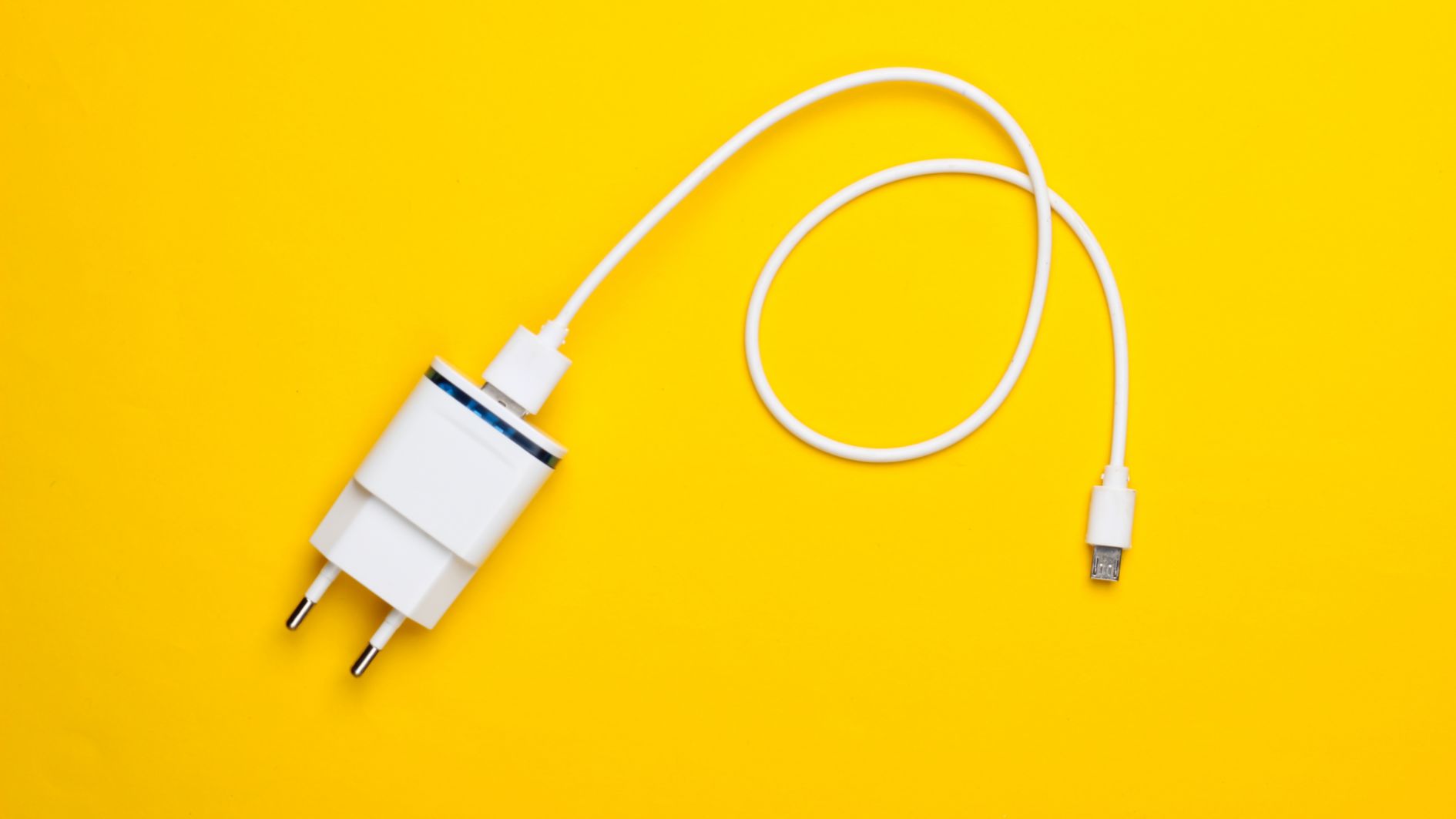Image source: Canva.com
While phone chargers are not as power-hungry as appliances like air conditioners or washing machines, it’s still important to know how much electricity they use when considering your home’s overall energy consumption.
Electricity Consumption of a Phone Charger
Generally, phone chargers use about 5 watts (W) of electricity. Some faster chargers can use up to 20 W, but most standard chargers are around the 5 W range. Phone chargers typically use one to two amps and connect to a 120-volt outlet.
The frequency with which you charge your phone significantly impacts how much electricity your charger uses. Assuming one full charge takes one hour:
- Charging your phone once per day uses 0.035 kilowatt-hours (kWh) of electricity per week, 0.15 kWh per month, and about 1.83 kWh per year.
- Charging your phone twice per day uses 0.07 kWh per week, 0.3 kWh per month, and about 3.65 kWh per year.
While 5 W is a good estimate for the average phone charger wattage, fast chargers can pull higher wattages. Here’s the annual electricity usage for different wattage phone chargers:
Annual Electricity Usage of Different Phone Chargers
| Phone Charger Wattage, W | Hours Per Year | Yearly kWh of Electricity |
|---|---|---|
| 5 | 365 | 1.83 |
| 10 | 365 | 3.65 |
| 15 | 365 | 5.48 |
| 20 | 365 | 7.30 |
We’ll primarily refer to electricity usage by phone chargers in terms of kWh since your electric bill is measured in kWh, and charges are based on the kWh of electricity used per month.
How much does it cost to power a phone charger?
Your monthly electric bill shows the total charge, not how much each appliance contributes. Based on a typical wattage of 5 W for phone chargers (about 1.83 kWh/year if used for one full charge per day), here’s the cost to run a phone charger monthly and annually, using state average electricity rates:
Monthly and Yearly Costs to Run a Phone Charger by State
| State | Average Electricity Rate | Cost Per Month | Cost Per Year |
|---|---|---|---|
| California | 32.47¢ / kWh | $0.05 | $0.59 |
| New York | 23.64 ¢ / kWh | $0.04 | $0.43 |
| Texas | 14.92 ¢ / kWh | $0.02 | $0.27 |
| Massachusetts | 29.66 ¢ / kWh | $0.05 | $0.54 |
| Florida | 14.69 ¢ / kWh | $0.02 | $0.27 |
| Virginia | 14.72 ¢ / kWh | $0.02 | $0.27 |
| New Jersey | 18.04 ¢ / kWh | $0.03 | $0.33 |
| Maryland | 18.09 ¢ / kWh | $0.03 | $0.33 |
| Washington | 11.72 ¢ / kWh | $0.02 | $0.21 |
| US Average | 16.68 ¢ / kWh | $0.03 | $0.31 |
Note: The average electricity rates are based on data from March 2024 provided by the U.S. Energy Information Administration (EIA).
Frequently Asked Questions about Powering a Phone Charger
What’s the best time to run a phone charger?
If you’re on a time-of-use (TOU) rate plan, it’s cheaper to use appliances during “off-peak” hours, usually overnight.
What size battery do you need to back up a phone charger?
All popular home batteries can power a phone charger. Most lithium-ion batteries, like the Tesla Powerwall or Generac PWRcell, have a power rating of 4 to 5 kW or higher and 10+ kWh of usable capacity. Phone chargers use about 5 W (0.005 kW), so a battery will easily back up and power your phone charger.
How many solar panels does it take to run a phone charger?
On average, phone chargers use about 5 W of electricity. With solar panels rated at around 350 W, you can power a phone charger easily with one standard solar panel.
What are ENERGY STAR appliances?
ENERGY STAR is a U.S. government-backed system certifying energy-efficient appliances. Appliances labeled “ENERGY STAR certified” are more efficient and cost less to run.
How much money can solar panels save you?
Solar savings vary widely based on factors like electricity usage, location, and rates. Generally, homeowners can expect to save between $10,000 and $30,000 over the lifetime of a solar panel system. Most homeowners find that their solar panels pay for themselves in 7 to 8 years.





